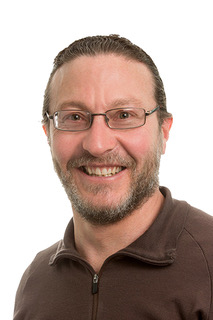What does it mean to live as God’s people in the 21st century after Christ? What does it mean to care for God’s planet at a time when we are now aware of the profound effects humans are having on the creation? While scientific and technological advances have made the world a much better place for billions of people, we have also reached the point where those same advances could be globally devastating. Are there specifically Christian attitudes to creation care? This series of conversations promises to lead participants into this discussion.
Thursday 3rd Mar 2022 @ 6:30 pm –
Thursday 12th May 2022 @ 7:30 pm
Online
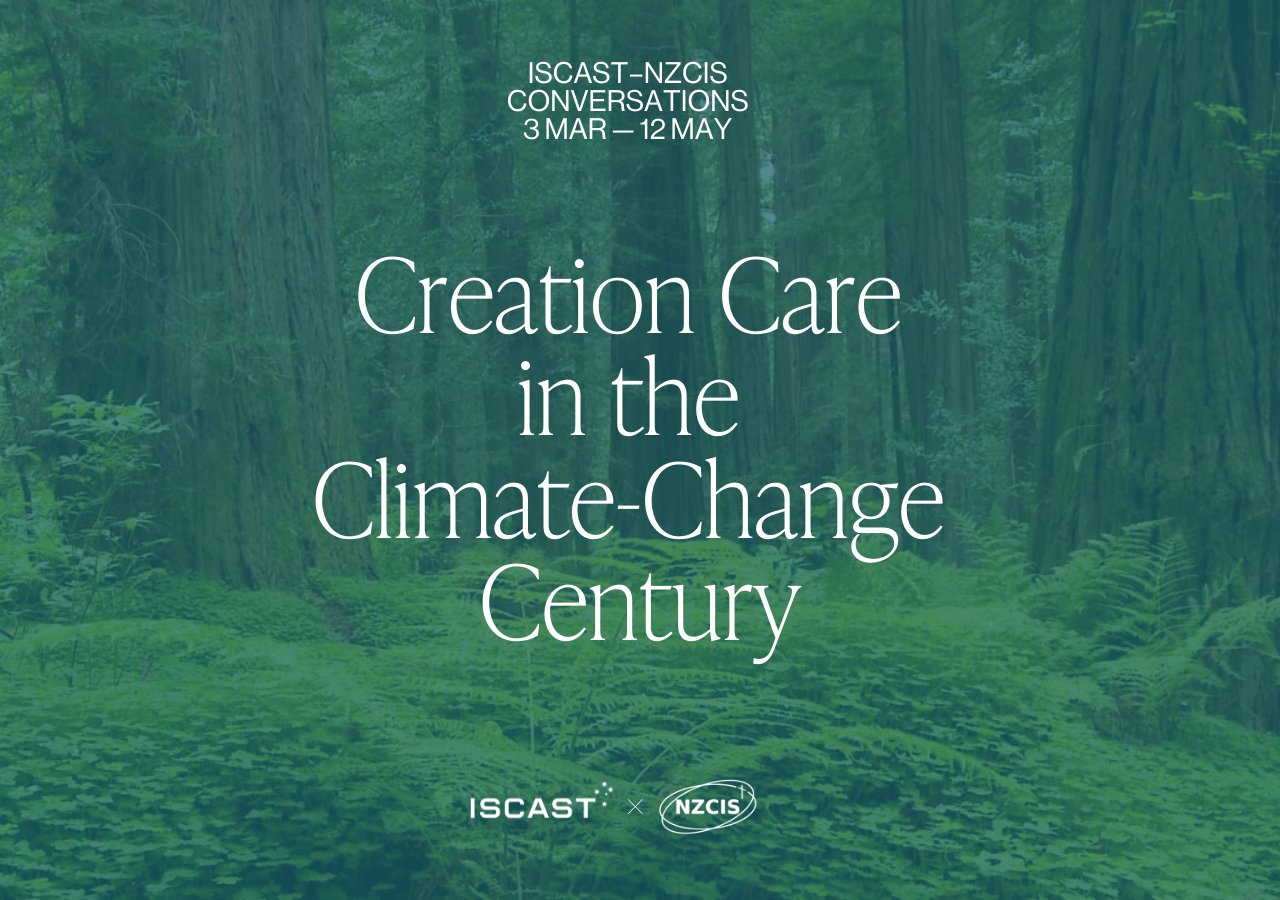
The ISCAST–NZCIS Conversations are back for 2022! Join us for 10 weekly online conversations from the 3rd of March to the 12th of May. This time, we’ll be discussing one of the most important, complex, and pressing themesof today: Creation Care in the Climate-Change Century.
DETAILS:
Thursday nights from 3 March until 12 May (Break on 14 April)
Starts 6.30 p.m. AEST or 8.30 p.m. NZST
Presentation: 30 minutes
Discussion & Questions: 30 mins +
PRICES:
This one-off fee will cover the cost of attending all the conversations.
$25 for ISCAST and NZCIS members
$50 for non-members
$10 for student/concession non-members
FREE for student/concession members of ISCAST or NZCIS
About the ISCAST–NZCIS Conversations
Since 2020, ISCAST and New Zealand Christians in Science have run the Conversations series, with an aim to promote a dialogue between the sciences and the Christian faith. Experts are invited to speak on their topic, which is then followed by a Q&A and discussion.
“The result of the Conversations for me is that theology and science together now truly inform my worship—no doubts, no niggles, no uncertainty.”
“New subjects and old ones, presented brilliantly.”
Speakers and Topics
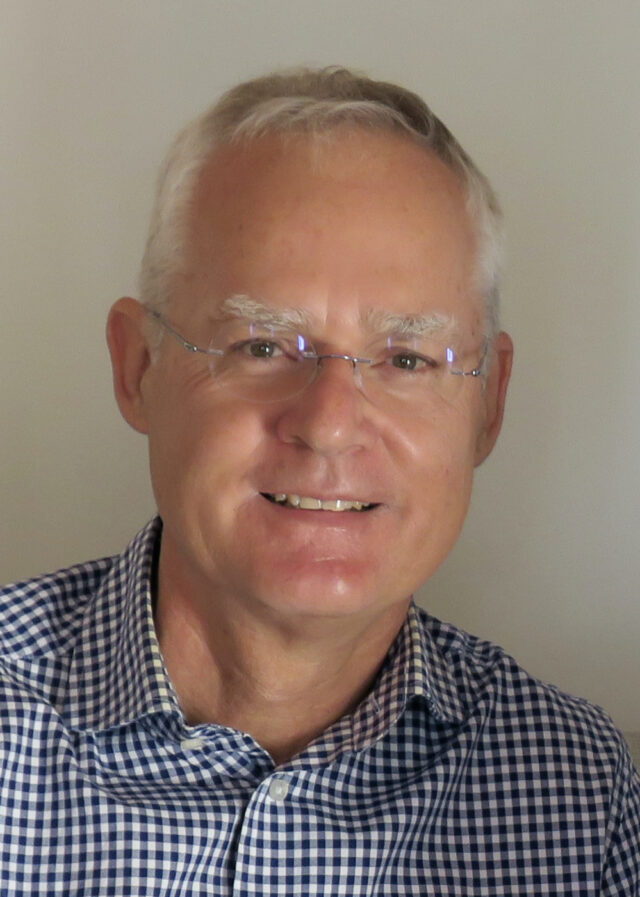
Caring for Creation: What Can We Actually Do?
March 3rd
Dr Philip HughesPhilip grew up in Ballarat Victoria and, with encouragement from his grandfather’s bird book, developed a keen interest in observing the birds of the region. This established a lifelong interest and appreciation of Australia’s biodiversity and a desire to explore and photograph its natural environment. He was formerly a scientist with the Defence Science and Technology Organisation working in aviation human factors and science policy and administration. He has a BSc in Optometry, MSc and PhD degrees for research in visual conspicuity, and a Graduate Diploma in Ornithology. He is a volunteer with BirdLife Australia and in 2015 was one of the founding directors of A Rocha Australia. He is an ISCAST Fellow.
Description
Australia has a rich and varied natural environment, and most people are interested in and delight in its biodiversity of animals and plants, different kinds of geology, physical processes such as weather and climate, landscapes and seascapes, and even the night-time view of our home galaxy and the universe in which we reside. Although many people desire to safeguard this creation, the results of science demonstrate that many parts of creation are seriously damaged through the actions of humans.
In this presentation I will describe some of the activities that demonstrate how people are committed to caring for the physical creation. For example, knowing the names and characteristics of animals and plants that live with us can sometimes be the foundation to being a citizen scientist. We might express care for creation by acknowledging it in worship, by praising its creator, or lamenting its destruction and misuse. We might contemplate it through art and music, or by getting our hands dirty by planting trees and managing natural habitats. We might take direct action by protesting when creation is abused or by being an advocate for creation. We might even attempt to live with the lowest possible impact on creation by the way we consume and create waste.
I will also describe some of the creation-care work of the international Christian biodiversity conservation organisation A Rocha and discuss some of the challenges in moving to a life of action in caring for creation.

Creation Care and Ecumenism: A New Direction for the “Oikoumene”
10 March
Gray BaldwinGray Baldwin is a dairy farmer milking 850 cows in the Central North Island of New Zealand. He spends 50% of his time in Agri-business governance as a director of Livestock Improvement Corporation (genetics), Ballance (fertiliser), Farmlands (farm inputs retail) and Trinity Lands (dairy and kiwifruit production). He holds M.Agr.Sc, M.Theol and Dip.Bus.Admin qualifications and is the Parish Council Chair of the St Paul’s Anglican-Methodist Co-operating church in Putaruru.
Description
Gray explores the changing face of ecumenism, and the place of creation care in the global church. He observes that structural and ecclesial ecumenism is in decline while interest in eco-theology and “saving the planet” is increasing. He suggests that even though traditional approaches to ecumenism now receive less attention in comparison to the past, and have to some extent been displaced by global ecology in Christian concern for the oikoumene, nonetheless the turn to global ecology might ultimately serve structural ecumenism in positive ways. In the future, eco-theology may become an important driver of church unity as originally prayed for by Jesus in John 17:23.
In the Beginning: Climate Change, Human Mastery, and Genesis 1
17 March
Claire Harvey & Dr Mick Pope

Claire Harvey co-authored A Climate of Hope: Church & Mission in a Warming World with Dr Mick Pope. Mother to Sarah and Micah, Claire is involved in The Village Church in Mount Eliza (VIC). Prior to re-training as a Careers Advisor, Claire worked as a Carbon Accountant. She also serves on the Ethos board, and in 2020 she was elected to Frankston City Council. She recently advocated, successfully, for a doubling of the tree planting in her local area over the next four years.
Mick Pope has a PhD in Meteorology from Monash University and lectures in meteorology. He is Professor of Environmental Theology at Missional University, and an adjunct lecturer at Eastern College.
Description
Climate change is often approached as a technological problem with technological solutions. However, climate change can be viewed as part of the broader problem of the Anthropocene—the period in Earth’s history when humans dominate the planet. This then allows a more nuanced and holistic approach to climate change by considering the underlying worldviews driving it. In turn, this approach allows a deeper theological understanding. Counter to narratives of human mastery and progress, the Priestly school of the Hebrew Bible presents the reader with concepts such as Sabbath, creation as God’s temple, and creation as an active partner in its own flourishing.

The Intimacy of Indigenous Epistemologies: Connecting with Christ in Creation
24 March
Dr Jay MatengaJay Matenga is a Māori theologian of missions practice who serves as the Director of the World Evangelical Alliance Global Witness department and Executive Director of its Mission Commission. Jay is also the leader of Missions Interlink NZ, the association of missions and outreach organisations in Aotearoa New Zealand. Jay has studied missions practice utilising post-modern and decolonial frameworks and is developing a biblically-authentic theology for a new era of missions that is less beholden to a Euro-American Theological Consensus. Drawing on his indigenous background, Jay believes that mutuality is the way forward for our participation in God’s mission, which extends from individuals, to positively impact their families and neighbourhoods, their societies and their habitats.
Description
A major “missing piece” in conventional creation care, eco-activism, and theologies of the environment is connection itself. That is, at least from an Industrial (think: Western) perspective, the human being has been artificially divorced from their habitats. While this separation has enabled great progress, it has caused great harm that only in recent years has become undeniably clear. The “autonomous being” is not even remotely possible in an Indigenous experience of reality. Furthermore, no biblical case can be made for it. The pathway to healing our world (reconciliation/redemption/shalom/peace/balance) is paved with intimacy. Our knowing must reconnect with our embodied experience in the world. For it is only there that we can experience Christ the Creator, in whom all things hold together (Colossians 1:15-20).
 Who is my Neighbour? Insights from Landscape Ecology
Who is my Neighbour? Insights from Landscape Ecology31 March
Prof. Andrew BennettAndrew is a Professor in Ecology at La Trobe University, with particular interest in wildlife conservation and landscape ecology. His research, together with colleagues, students and industry partners, has a focus on how human land-use affects the ecology and conservation of wildlife and ecosystems. Key areas include the ecological effects of landscape change in rural environments, restoration through revegetation, and the effects of fire and fire management on ecosystems. Six-month study periods in Canada, UK and USA have been formative experiences in gaining a broader understanding of landscape change. He has two adult sons and two grandchildren, is a member of the Banyule Network of Uniting Churches, and is an ISCAST Fellow.
Description
In Luke’s gospel, in response to the question “Who is my neighbour”, Jesus answers with the parable of the “Good Samaritan”, set in a context relevant to the expert in the law. What parable about neighbours might Jesus tell us in the context in which we live? Here, Andrew reflects on the question of “who is my neighbour” from an ecological perspective, particularly in relation to wildlife conservation and landscape ecology. He will use examples to illustrate ways in which ecological systems are connected at local, regional, national and international scales; and connected through time. A consequence is that how we live has the potential to affect (for better or worse) the environment that many “neighbours,” near and far, will experience; both now and in the future. In this context, to “love your neighbour as yourself” challenges us to think deeply as individuals, community and nation about the wider effects of how we interact with, and care for, the environment.
 Why on Earth Should We Care?—The Ecological and Theological Basis for Urgent Environmental Stewardship
Why on Earth Should We Care?—The Ecological and Theological Basis for Urgent Environmental Stewardship
7 April
Dr Wesley Webb
Wesley Webb is a bird nerd ecologist who is passionate about the theology of creation care. His PhD was on NZ bellbird/korimako songbird dialects across the islands of the Hauraki Gulf, and the focus of his current postdoc is the evolution of female birdsong complexity in songbirds around the world. Wesley and his wife live in West Auckland.
Description
Caring for the planet has sometimes been viewed as a side issue by Christians who believe our primary task is to save souls, not seals. Wesley will show God’s passion for his creation and our role as caretakers as revealed in scripture, and how “creation care” is a central part of loving God and loving our neighbour. Come and be moved by a visual presentation of the marvels of nature and a hope-filled response to the ecological crisis.
No talk on 14 April
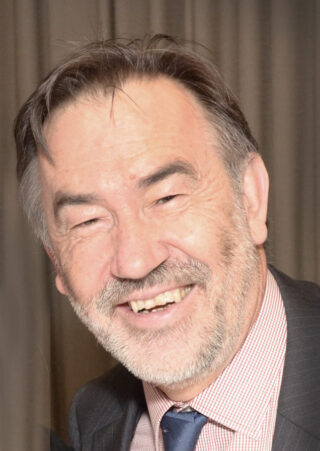
Where to with Creation Care?
21 April
Richard Gijsbers
Richard Gijsbers, as a retired forester, spent his professional life working with nature: protecting it, drawing from it, repairing it, and living with it. Much of his formative Christian thinking developed in parallel with his career, and he has struggled long regarding how his faith can contribute to his profession and vice versa.
Description
Richard describes himself as having done some reading, some formal study, lots of arguing and earbashing, and not a little bit of thinking on this subject, which he will share in this conversation. His intention is not to convince others as to the rightness of his cause but to explore together—in the spirit of Pope Francis’ Laudato Si’ and the ISCASTian challenge to promote constructive conversations in a space that allows for disagreement—about how we as humans can live together in and with nature.
Richard is currently concerned that the “standard” creation care agenda, drawing heavily on current eco-theological thinking, is painting itself into a corner and is therefore struggling to be relevant to society’s attempts as a whole to live more sensitively with nature. He will suggest that there are other threads that Christian theological thinking could be pursuing to greater effect.
Other links from Richard’s Conversation:
- Richard’s Presentation Slides
- Dr Mike Hulme’s Lecture: “Beyond Climate Solutionism”
- Dr Mike Hulme’s Blog Article: “Climate Change is Not the End of the World”
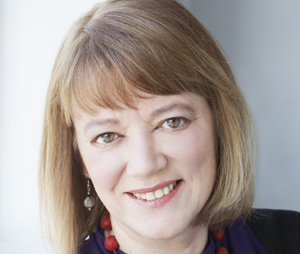
Re-enchantment of Nature: A Christian Imperative in a Climate Change World
28 April
Dr. Nicola Hoggard Creegan
Nicola is the co-Director of NZ Christians in Science. She is a theologian based in Auckland, and specialising in the interface between evolutionary theory and systematic theology, with broad interests also in all issues of public and contextual theology and ecology. For seven years she chaired TANSA (Theology and the Natural Sciences in Aotearoa). Her recent book, Animal Suffering and the Problem of Evil (OUP, 2013), examined theodicy given the reality of long aeons of animal suffering before humans arrived. It interacts with the challenges that systematic theology faces in light of evolution, but also examines some of the changes win evolutionary thinking in the last few decades. She is working now on the problem of free will in dialogue with the sciences. She was a part of the Human Nature Project at CTI in Princeton, 2012-2013, and the Human Distinctiveness Project at Notre Dame 2015-2016. Nicola has taught theology in the US and NZ. Her doctorate is in theology, but her original training was in mathematics and biology.
Description
For many reasons Christians have moved away from nature as a source of knowledge about God, at exactly the time when we need to be understanding our deep embeddedness in a living world that is in peril. In a new book, Climate: A New Story, David Epstein argues that we need a more holistic approach to climate mitigation; we need to see nature as sacred, and we should be embracing what he calls Inter-being. Epstein is not a Christian, but as Christians we can see that these are exactly the particularities of Christian faith: Nature is sacred because it is creation, and as members of the body of Christ, Inter-being should be our prerogative. Christians are beginning to see that embracing nature as a revelation of God’s presence and wisdom is not idolatry; through science and by participating in the natural world, we come closer to God, glimpsing the infinite depth and anticipation in nature. Nature can surprise us, heal us, can fund our hope and our religious sensibilities, helping us to understand much of Scripture, as well as guiding us on the journey to a new ecological activism.
 Helping Christians Connect Faith to Creation Care: A Report on Research
Helping Christians Connect Faith to Creation Care: A Report on Research
5 May
Sally Shaw
From 1984-86 Sally worked as a nurse/midwife in the Cambodian refugee camps in Thailand. In 1988 she worked in community development with World Vision. Sally later established a local NGO using improvisational drama to build self confidence in people from disadvantaged backgrounds. Sally has a Diploma in Creative Writing, Master of Education (2013), a Diploma in Divinity (2016), and Master of Ministry (2019). She is presently doing a Doctor of Ministry, focusing on designing and running a series of workshops on biblical and practical ways to care for God’s creation. She is a director of A Rocha Australia, an international Christian conservation organisation. Sally is married to Doug with three young adult children. They live in the Aldinga EcoArts village in South Australia and are linked to the local Anglican parish church.
Description
Historically, the church has remained tied to ancient Greek beliefs that elevate the spiritual over the physical. These beliefs have become ingrained in much of the church’s teachings and interpretations of Scripture, resulting in some Christians seeing church attendance, reading the Bible, prayer, and converting people to Christ as the priority. These understandings have created attitudes of ambivalence and antagonism towards care for creation amongst some Christians.
To explore how these issues might be addressed, Sally’s research investigates how an experiential workshop can be used to help Christians to integrate their faith more fully with creation care.
Using the arts and humanities for learning involves learners as active participants. They are not fed information but actively explore a subject. In addition, this sort of learning is a collaborative and embodied experience, with the capacity to encourage curiosity and allow critical reflection that can challenge entrenched beliefs and lead to transformative discoveries. Moreover, it can encourage learners to see, listen, and feel in a collective way, so as to understand God’s call in our rapidly changing world.
The foundation of this research is based on scholarly studies and Sally’s own experience. The Design-Based Research methodology allows for such workshops to be tested and refined, with the intent of producing a template for use in churches, youth groups, and para-church groups. In October 2021 and in March 2022 Sally ran two successful workshops; her presentation will include some of the outcomes.
Apocalyptic Imaginations: Theology, Science, and Literature at “the End of the World”
12 May
Dr Andrew Shepherd
Andrew Shepherd is a Lecturer in Theology and Public Issues within the Theology Programme, University of Otago. His working life has included involvement in formal and informal theological education, environmental and international education, and leadership responsibilities in non-profit organisations – including a long involvement in Christian conservation organisation, A Rocha. He joined the University of Otago in late 2019 . His current research interests include: environmental ethics and climate change; violence and militarism; surveillance capitalism. His publications include: The gift of the other: Levinas, Derrida, and a Theology of Hospitality. (Eugene, OR: Pickwick, 2014); and edited volumes: Creation and Hope: Reflections on Ecological Anticipation and Action from Aotearoa New Zealand. (Eugene, OR: Pickwick, 2018); Taking Rational Trouble over the Mysteries: Reactions to Atheism. (Eugene, OR: Pickwick, 2013).
Description
The immediate future of humanity looks unpromising. Without an incredible drop in global greenhouse gas emissions, protection of oceans and terrestrial habitats, and radical changes to land use – all of which require a radical rethinking of contemporary human civilisation—our descendants will be living in a considerably hotter planet, with substantially less biodiversity. These enormous biophysical changes of the future will cause significant economic, social, and political upheaval. Facing such a future it is not surprising to see science-fiction writers and even novelists producing narratives in an apocalyptic tenor. In this talk I seek to offer some reflections upon the relationship between contemporary cli-fi (climate fiction) literature, theology, and science. How do these authors conceive of the relationship between science and theology? What is the future they envisage? How do their works of imagination seek to both name the struggle the contemporary world faces and yet also foster hope? What is the nature of the hope they describe and what might such a hope mean for Christians engaged in the scientific and theological enterprises?
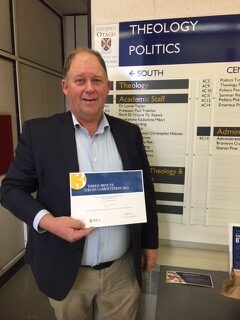
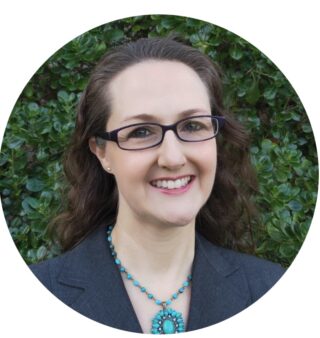
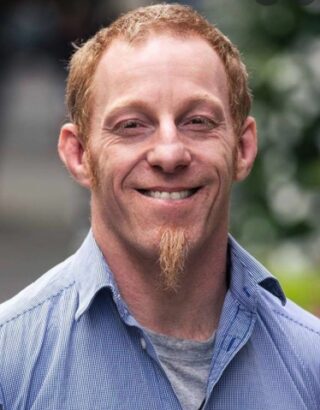
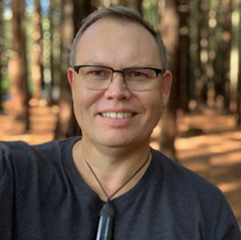
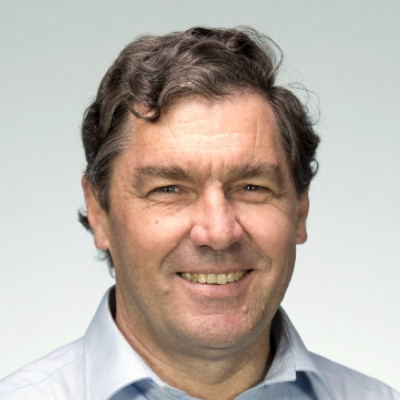 Who is my Neighbour? Insights from Landscape Ecology
Who is my Neighbour? Insights from Landscape Ecology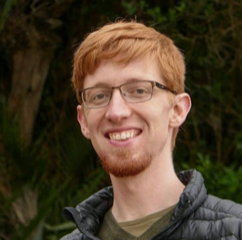 Why on Earth Should We Care?—The Ecological and Theological Basis for Urgent Environmental Stewardship
Why on Earth Should We Care?—The Ecological and Theological Basis for Urgent Environmental Stewardship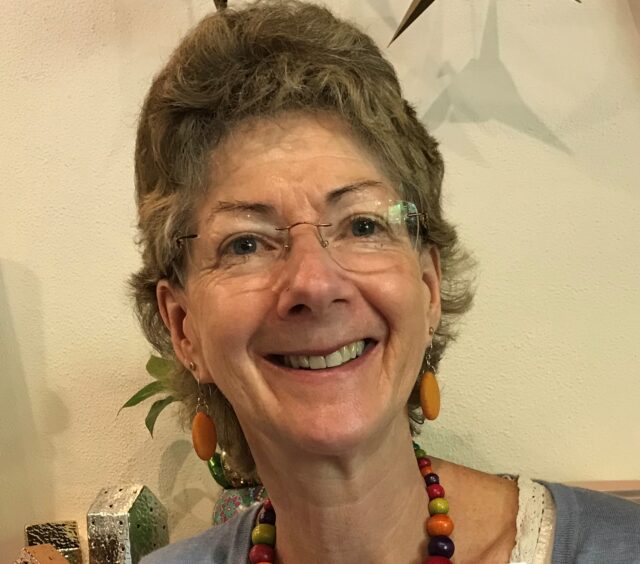 Helping Christians Connect Faith to Creation Care:
Helping Christians Connect Faith to Creation Care: 